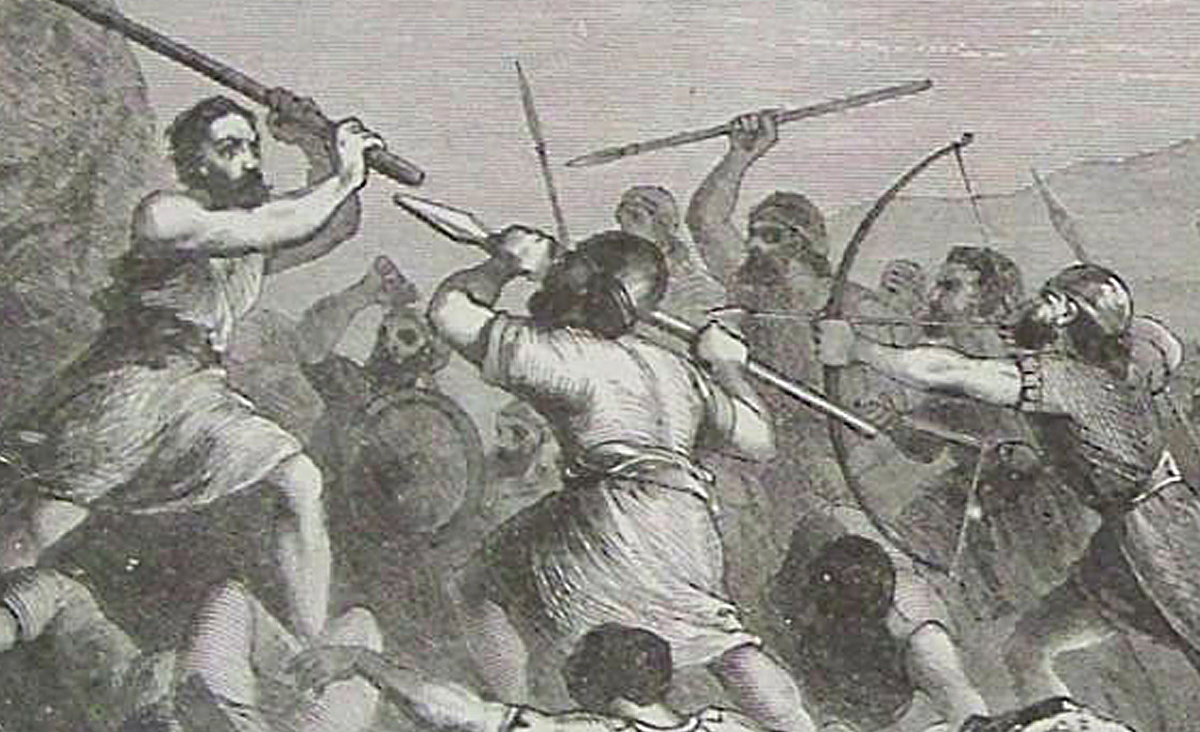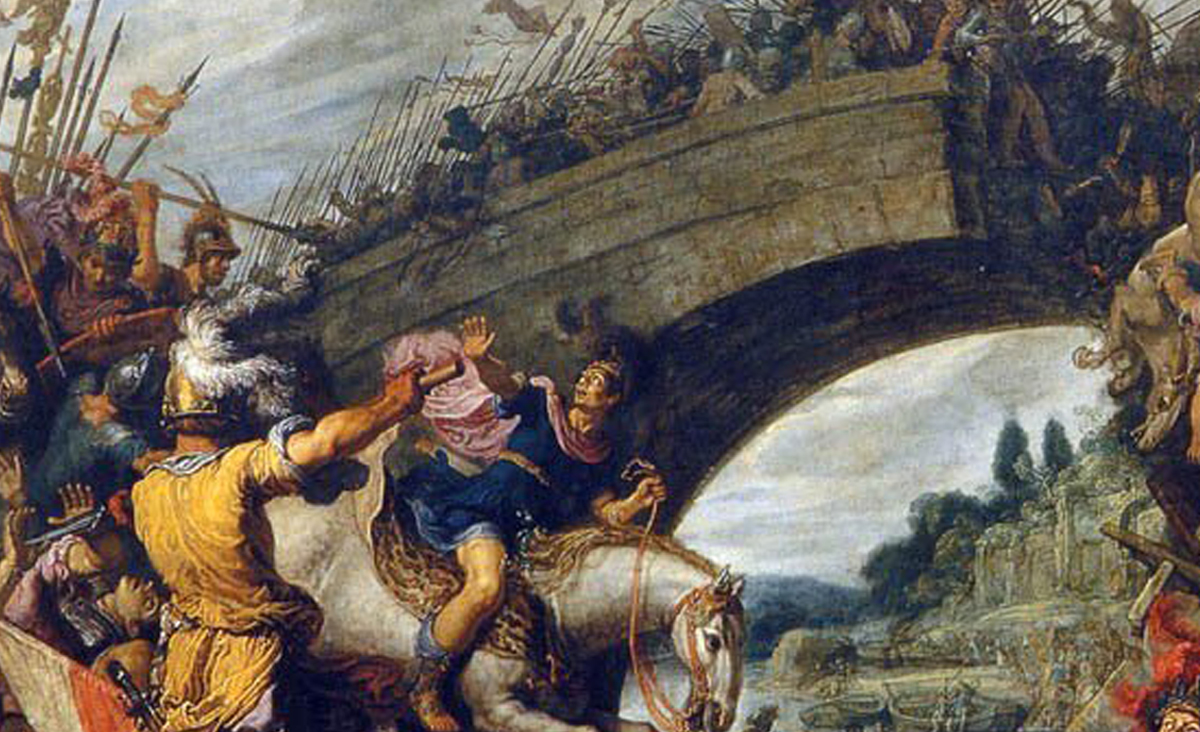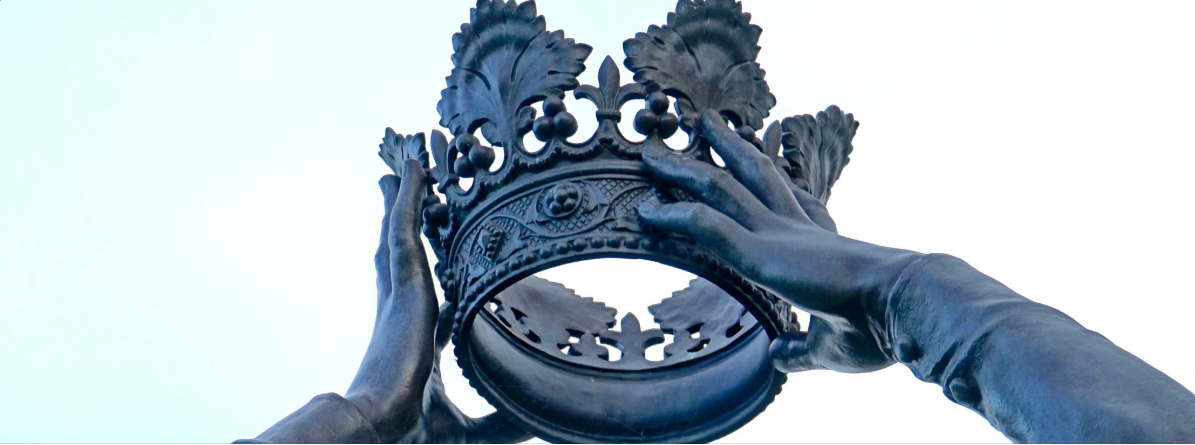In this devotional series, Ash Clarkson walks us through Judges.
Judges 1:1-21: Trusting in Divine Leadership
The Book of Judges chronicles the leadership of Israel after Joshua’s death, showing how when they sought to rule themselves, they descended into immorality, chaos, and judgement. True leadership comes from trusting in God’s Divine Leadership, and following those whom
Judges 1:22-36 – Tolerance for Sin
While in the south of Israel the military campaigns were largely successful, because they followed God’s leadership, the north of Israel was not as successful. The ultimate failures in the North laid the seeds for much of the later oppression
Judges 2:1-5: Repentance, Not Weeping
In the first chapter of Judges, we have seen sin and disobedience in Israel’s life. Despite God’s command to drive out the pagan nations of Canaan, the Israelites tolerated their idolatry and immorality in their midst. In the first five
Judges 2:6-13: Forgetfulness to Failure
children will. After Joshua died, that is what happened to Israel. They forgot God. They did not follow him. They failed. This passage emphasises the importance of not forgetting God in our lives, and teaching and encouraging the next generation
Judges 2:14-3:6: Judgement And Deliverance
Jesus’ death and resurrection is the hinge of history. It is the point all of history builds towards, and it is the point of all history we look back towards as we progress to history’s end – when Jesus returns
Judges 3:7-11: God Dramatically Saves Through Boring
In Judges there are exciting salvation stories, and boring ones. The first example, that of God’s saving Israel through Othniel, falls into the boring category. But boring is often good. And the lack of excitement in Othniel’s judging allows us
Judges 3:12-30: Comical Relief
Judges 3 contains a story which holds plenty of comical relief, along with an element of personal gorishness which surprises and shocks our sensibilities. But along with the comical relief, the story describes a different type of relief; a relief
Judges 3:31 The Curious Case of Shamgar
, what he did, and what effect it had on Israel. He only rates a one verse mention. But he is still important, because the Bible points him out.
Judges 4: Unlikely Vessels of Victory
Judges in Chapter 4 God further demonstrates his use of unusual means to save his people; two women. Where the men are weak, fearful, and cowardly, two women are brave and courageous, striking a blow for freedom.
Judges 5: Praising God’s Deliverance
Singing praises to God was important throughout history, and in Judges 5 we see another song which sings praises to God for who he is and what he had done for God’s People in delivering them from their oppressors. This
Judges 6:1-10: Locusts and Learnings
You would think that after God’s mighty act of salvation, we would stay on the straight and narrow. Sadly, this is not what happens. We often forget God’s goodness expressed to us through Jesus, and fall into sin. Often in
Judges 6:11-24: God Calls Gideon
Gideon in his weakness, commissions Gideon with a promise, and assures Gideon with a sign. Gideon realises the heights of God’s holiness and the terror of his inadequacy, but experiences the peace with God that ultimately comes to us all
Judges 6:25-32: Cutting Down Idols
groups. Whether they are an ideology, a practice, or a physical object, idols are very precious to us. When they are shown to be the impotent things they are compared to God, trouble is not far behind.
Judges 6:33-40 – Strength and Weakness
The Christian walk can feel like a constant conflict between strength and weakness. Empowered by the Holy Spirit, we step out in faith and trust God’s promises, turning away from sinful patterns of life. Yet at the same time, our
Judges 7:1-15: Strength Through Weakness
or invading other countries who have something you would like. Weakness is not a virtue, or a place from which victory is expected. Those that win through strength of body, supporters, or numbers, live in boastful pride that none can
Judges 7:16-25: Strength Becomes Weakness
There is truth to the saying that your greatest strength can also be your greatest weakness. In the areas you are most confident, pride and negligence often take hold. Pride, as Proverbs tells us, comes before destruction and a haughty
Judges 8:1-21: Weakness Through Status And Security
Why do people seek status and security? Usually, because it places you in a position of strength. With status, you can influence others for your own benefit or to avoid discomfort. With security, you can rest knowing that others view
Judges 8:22-32: From Strength to Weakness
It is hard to stay strong. Harder still when you were never particularly strong to begin with, and when those around you are weak. For all the strength of Gideon’s victories over Midian, empowered by God, his latter years are
Judges 8:33-9:21 – The Wrong Kind of King
Our National Anthem asks God (somewhat ironically perhaps, due to our pagan nature) to defend New Zealand. It includes a request to guard our country from the “shafts of strife and war” – that is, from troubles caused by foreign
Judges 9:22-57: Downfall of the Wrong Leader
God does not always strike with lightning or fire and brimstone. Sometimes, God judges through decline and self-destruction. Sometimes, God uses evil to destroy itself. Sometimes, judgement comes from within, not just from outside a nation.
Judges 10:1-5: Majoring On Two Minors
Book of Judges is not like your standard history book. While it covers the high and low points of the Judges period of Israel’s time in the Promised Land, it also majors on the minors. Immediately following the account of
Judges 10:6-16: Apostasy and Compassion
In Judges 10, we are exposed to the further decline of Israel’s attitude to God, and their increased apostasy. In the face of stricter punishment, Israel once again made gestures towards behaving themselves. Yet God’s compassion to Israel was not
Judges 10:17-11:11: Rejected Saviour
How often in life do we reject the help or advice of someone until it is past time that we need it? As a father, it seems like my children do not listen to my advice until it is too
Judges 11:12-28: Knowing Your History
In our second look at Jephthah’s role as a Judge over Israel, we see the importance of history in the conflict between Israel and Ammon. Ammon promotes a revisionist history of the settlement of Israel, which Jephthah corrects, showing God’s
Judges 11:29-40: Jephthah’s Tragic Vow
e all say or do foolish things, or make stupid promises. Sometimes we wish we had stopped rebelling against God earlier, or paid more attention to God’s commands. Most of the time they don’t have dire, life-changing consequences. Sometimes, they
Judges 12:1-7: Pride and Prejudice
statement is. Likewise, prejudice against those different to us is an ever present truth in this fallen world. In this passage, we see the tragic consequences of pride and prejudice (sorry Jane Austen). Ephraim’s pride, combined with Jephthah and Israel’s
Judges 12:8-15: Power, Wealth, and Passing Mention
People like to gather power and wealth because it makes them notable, but in the end most will just become a passing mention at best. Like three of the judges mentioned in the next section of Judges. Ultimately their power
Judges 13: A Saviour From Birth
Samson, the final judge in the Book of Judges, grew up knowing he had a special destiny. In Judges 13, God’s dramatic power to provide a saviour for Israel from birth is demonstrated to a common man and his wife.
Judges 14: Secrets and Agendas
In Judges 14, we are introduced to three people or groups with secrets and agendas. Samson has an agenda and secrets. The Philistines have an agenda, and want to know secrets. Finally, God has an agenda in the actions of
Judges 15: Foxes, Fire, and Jawbones
Judges 15 continues the story of conflict between Samson and the Philistines. However, this conflict is driven not by ideology or devotion to God, but by his own passion, pride, and temper. While God uses this to mock and begin
Resources
Questions? Please contact us. Inspired? Come and worship with us on Sundays.










